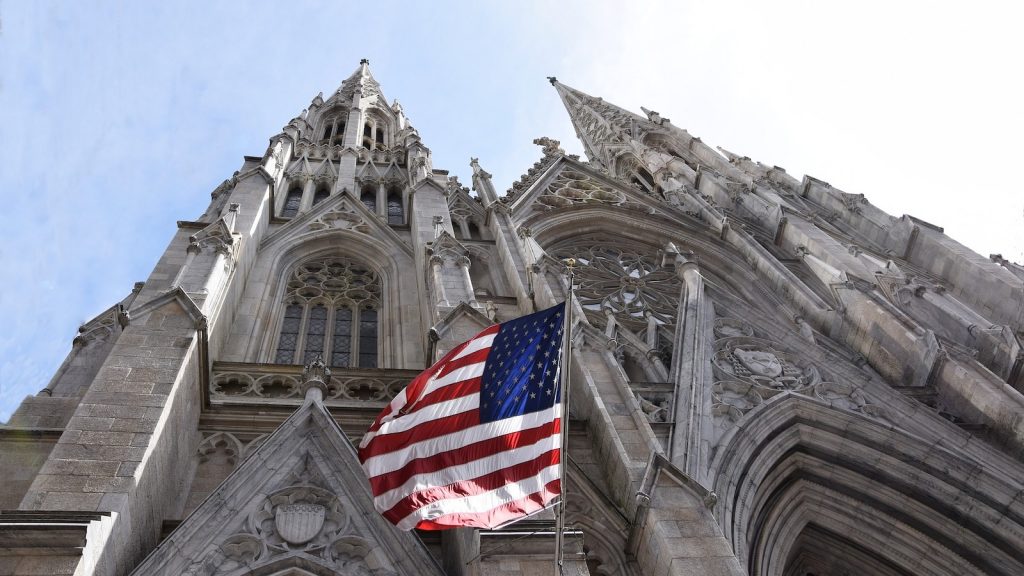
Worthy but Imperfect Advice on Church-State Issues for the Incoming Administration
Just before last November’s election, two insightful Washington influentials published a memo of advice to the next presidential administration on what to do about issues concerning religion in public life, including the faith-based initiative. A Time to Heal, A Time to Build, by Melissa Rogers and E. J. Dionne, is an important and wide-ranging set of recommendations. In preparing it, Rogers and Dionne consulted widely; I was one of those invited to offer my perspective and recommendations. Rogers and Dionne, a Baptist and a Catholic, both politically to the left, have for decades led initiatives to build common ground concerning contentious church-state issues. Much of the analysis and many of the recommendations are excellent. However, the recommendations concerning issues at the intersection of religious freedom and nondiscrimination requirements are lacking.
The report wisely calls on the next administration to respect, not ignore or suppress, real differences as it works to overcome polarization and to promote the common good. It rightly says that the next administration should work diligently—from its earliest days of planning—to understand and deal constructively with issues arising from religion in the public square. It calls on the next administration specifically to “affirm a robust role for religion in the public square,” because religion is important in the US and globally. The report stresses, however, that more and more Americans are “nones” or secularists whose concerns should not be ignored. The next administration must also find a way to draw in the religious freedom voices of racial and ethnic minority communities. And, because religion is an ever-present dimension of public policy, the report rightly urges that church-state experts be recruited into multiple key positions—positions in such key bodies as the Domestic Policy Council, the National Security Council, the White House Counsel’s Office, the Office of Management and Budget, and the Department of Justice.
The report urges the next administration to revive the faith-based initiative after its marginalization during the past four years. A recreated White House partnership office should be located in the Domestic Policy Council and not the outreach-oriented Office of Public Liaison, as it is now. The White House office and the departmental partnership centers should be fully staffed, these offices should be given a strong grant of authority through new Executive Orders, and the White House office should again play a strong role in coordinating the work of the centers. Officials must invite into discussion the wide range of American religious and secular voices, reaching beyond evangelicals and Christians generally. The federal government should support the houses of worship and other neighborhood organizations that are the backbone of many marginalized communities but which find it difficult to compete successfully for grants to support their indispensable services. In its excellent set of recommendations, though, the report does not sufficiently stress that the government, in its interactions with faith-based organizations, must take great care not to force those organizations to suppress or sideline their religious character and convictions. A major reason for the original creation of the initiative was that government, left to its own tendencies, excludes religious organizations or pressures them to diminish their religious identity and practices.
The last major section of the report is mainly about the intersection of religious freedom and nondiscrimination requirements, and, in particular, the clashes between proponents of progressive sexual ethics and persons and organizations that maintain conservative views and practices concerning sexuality and marriage. The report recommends that the next administration “work with Congress to pass legislation that will promote LGBTQ equality and resolve the religious exemption issues,” and mentions two bills that deal with these questions, the Equality Act and the Fairness for All Act.
But the essential question is not about religious exemptions but, rather how, in our one society, adherents of the opposed convictions about sexual ethics will be able to live together. That is, the government should not assume that progressive sexual ethics are normative for society and then secondarily consider whether it must provide some exemptions. Civil rights protections must be provided for LGBTQ people and yet the government must also protect religious exercise, including the beliefs and practices of people committed to conservative sexual ethics. Pluralism must be the goal and the framework. The Equality Act is so one-sided that synagogues would be barred from receiving federal funds to boost their security against terrorism, and morally conservative faith-based organizations would be excluded from federal funding to provide services. The Fairness for All Act, by contrast, has been written specifically to provide for pluralism, for both-and solutions, across the range of civil rights issues. That Rogers and Dionne decline to choose between the two approaches is troubling.
A Time to Heal, A Time to Build is right to call on the incoming administration to give central attention to religion in public life while taking full account of the growing proportion of Americans who are not attached to any specific religious community or who are anti-religious. It is right to urge a return to an even-handed approach in which the administration welcomes the voices of the wide range of American religious communities and organizations. It is right to stress that the federal government must protect the rights of LGBT persons. However, the federal government should not prioritize the protection of LGBT, reproductive, or secular rights over its protection of religious exercise and religious organizations. To adequately protect all rights, it must adopt a pluralist framework, rather than committing first to a nondiscrimination framework with religious freedom protections added in later.
